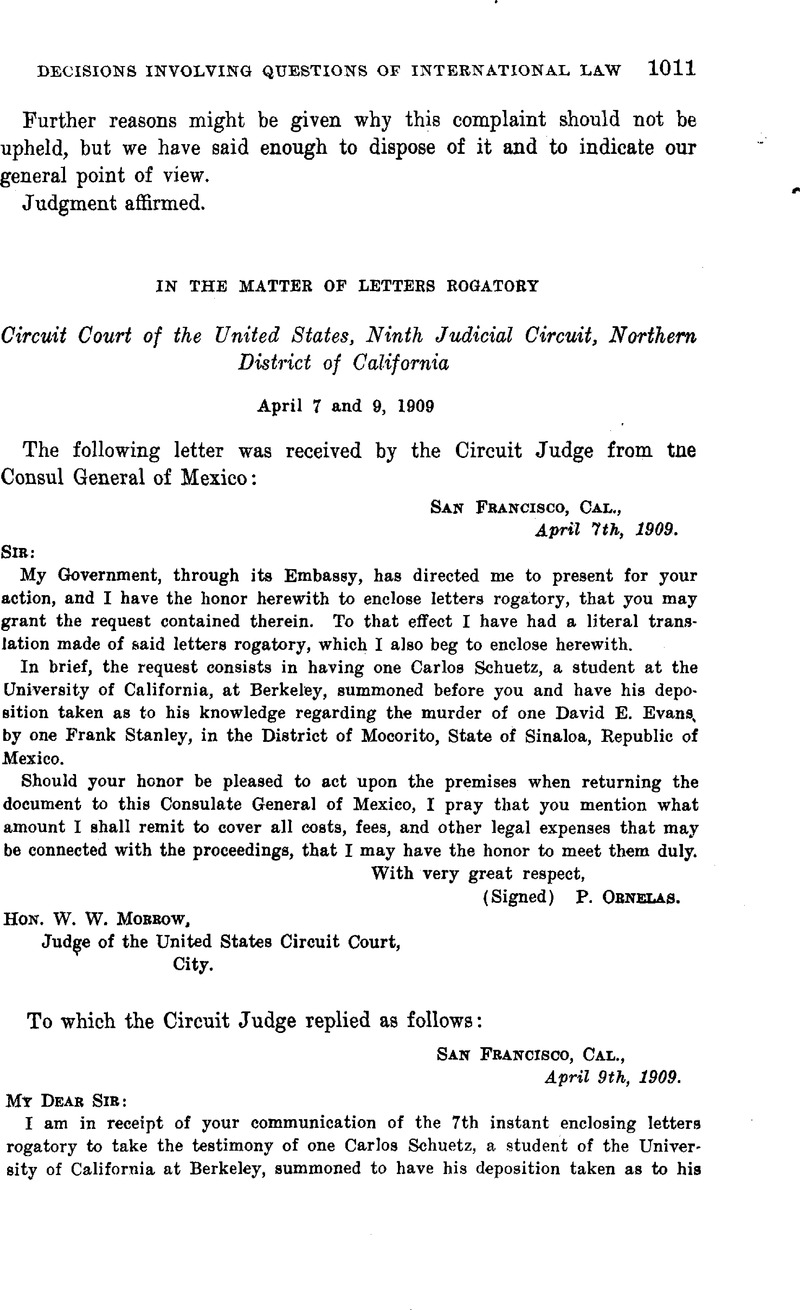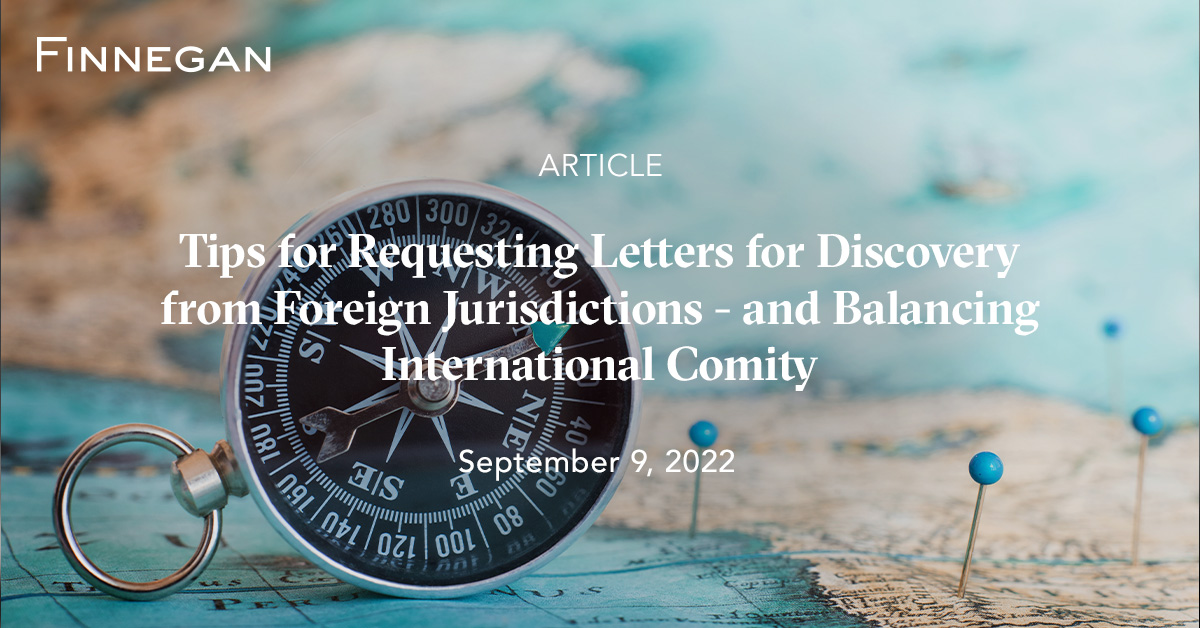How to Effectively Use Letters Rogatory in Cross-Border Legal Cases
How to Effectively Use Letters Rogatory in Cross-Border Legal Cases
Blog Article
Letters Rogatory Explained: Facilitating Legal Collaboration Between Countries

Definition of Letters Rogatory
Letters rogatory are official requests made by a court in one territory to a court in another territory, looking for support in acquiring evidence or testimony for a legal action. This procedural mechanism is crucial in the context of international legislation, where legal systems might vary, and cross-border participation is necessary. Letters rogatory assist in the event of info that may be important for settling situations, specifically in instances entailing complex global problems.
Commonly, these requests occur in civil, criminal, or administrative issues where an event needs evidence that lies outside the jurisdiction of the requesting court. The letters function as a method to guarantee that the concepts of due process are promoted, enabling courts to gain access to evidence that might otherwise stay inaccessible due to legal or geographical barriers.
Making use of letters rogatory is controlled by global treaties, reciprocal arrangements, or residential regulations, which mark the treatments and commitments of the courts entailed. It is essential to keep in mind that the implementation of such demands is not assured; they depend upon the legislations and methods of the jurisdiction receiving the letter. Thus, letters rogatory are a pivotal tool for cultivating lawful participation and making certain justice throughout borders.
The Process of Issuing Letters Rogatory
Issuing letters rogatory entails an organized procedure that makes certain conformity with both global and residential legal standards. The requesting party, commonly a court or lawful authority, drafts an official demand outlining the nature of the help sought, the proof or information required, and the lawful basis for the demand. This document has to be accurate to facilitate understanding by the international jurisdiction.

The next action involves sending the letters rogatory to the assigned foreign authority. This is frequently done with diplomatic networks or global lawful assistance structures, making certain that the demand is gotten and acknowledged by the foreign court. The foreign court after that refines the request according to its own legal procedures, inevitably reacting to the requesting event with the popular information or evidence, therefore assisting in global legal teamwork.
Significance in International Legislation
The significance of letters rogatory in global law can not be overstated, as they function as an essential system for judicial cooperation throughout boundaries. These official demands for support in lawful matters enable courts in one jurisdiction to look for information, proof, or the existence of witnesses from one more jurisdiction, thus promoting the administration of justice in multinational situations.
Letters rogatory are specifically essential in the context of globalization, where legal disputes typically extend numerous nations. They allow the collection of evidence that may otherwise be inaccessible, guaranteeing that legal proceedings are educated and reasonable. By fostering collaboration between judicial systems, letters rogatory assistance maintain the rule go to this site of legislation and advertise shared regard amongst countries.
Additionally, using letters rogatory demonstrates a dedication to international standards and principles of cooperation, showing the interconnected nature of modern lawful techniques. It illustrates the importance of adhering to well established treatments and treaties, such as the Hague Convention, which gives a framework for these demands - Letters rogatory. Inevitably, letters rogatory improve the effectiveness of legal procedures, making certain that justice is not prevented by geographical limits
Difficulties and Limitations
Regardless of their importance, letters rogatory face several difficulties and constraints that can hamper their performance. One primary concern is the differing lawful structures and procedures throughout territories, which can lead to misconceptions and delays in the implementation of requests. Different countries might have distinct demands for the legitimacy of letters rogatory, making complex the process even more.
In addition, see this the often protracted nature of international lawful teamwork can hinder prompt access to proof or witnesses. This hold-up may negatively affect legal proceedings or ongoing examinations, specifically in situations needing immediate activity. Furthermore, the lack of resources and training in some jurisdictions can result in not enough handling of demands, causing incomplete or inadequate feedbacks.
Social distinctions and differing mindsets towards legal processes can also pose substantial barriers. Countries with less formal lawful systems might struggle to comply with the procedural rigor expected in letters rogatory. Last but not least, political tensions in between nations can influence the determination to perform requests, resulting in an absence of collaboration and lessening the energy of this system in international regulation. These difficulties necessitate continual discussion and reform to improve the effectiveness of letters rogatory in lawful collaboration.
Study and Instances

On the other hand, obstacles can arise, as seen in a situation entailing a European nation looking for proof in a continuous criminal matter from a non-EU country - Letters rogatory. The process was postponed because of bureaucratic hurdles and find out this here differing lawful criteria, eventually hindering the examination
These instances illustrate that while letters rogatory can assist in worldwide teamwork and quicken lawful procedures, they additionally highlight the requirement for clear interaction and understanding of legal structures between nations. Such situation studies underscore the significance of refining this tool to boost effectiveness and efficiency in global lawful issues.
Final Thought
In summary, letters rogatory serve as an essential mechanism for helping with lawful collaboration between countries, making certain the collection of evidence and statement throughout jurisdictions. Their relevance in global regulation can not be overstated, as they promote due procedure and enhance the efficiency of cross-border lawful process.
Letters rogatory are formal demands made by a court in one territory to a court in an additional jurisdiction, seeking aid in obtaining proof or testimony for a legal case. The asking for celebration, commonly a court or legal authority, prepares an official demand outlining the nature of the aid sought, the evidence or details needed, and the lawful basis for the request. The foreign court then refines the request according to its own lawful procedures, inevitably responding to the asking for celebration with the popular details or proof, hence facilitating global legal collaboration.
Additionally, the usage of letters rogatory shows a commitment to worldwide norms and concepts of participation, reflecting the interconnected nature of modern-day lawful techniques.Global legal cooperation with letters rogatory is not without its real-world ramifications, as shown by different instance researches that highlight both successes and obstacles.
Report this page